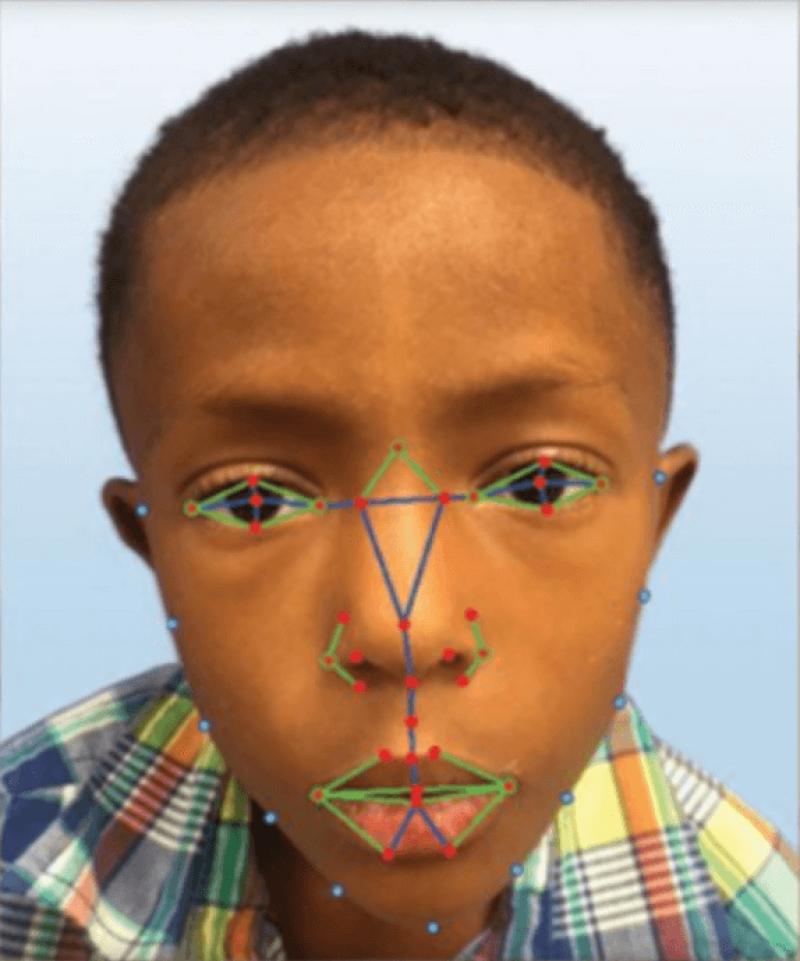1010Researchers with the National Institutes of Health’s National Human Genome Research Institute (NHGRI) successfully used facial recognition software similar to that found in airports and on Facebook to diagnose a rare genetic disease called 22q11.2 deletion syndrome using photos alone.
The disease, also known as known as DiGeorge syndrome, can be difficult to diagnose in diverse populations since it leads to multiple defects, including heart problems, hearing loss, a cleft palate and other distinctive facial features. Yet early intervention can be critical to getting patients the right care.
“Human malformation syndromes appear different in different parts of the world,” Dr. Paul Kruszka, a geneticist in NHGRI’s Medical Genetics Branch, said in a statement. “Even experienced clinicians have difficulty diagnosing genetic syndromes in non-European populations.”
Doctors in 11 countries submitted 101 photos for use in the study, published last week in the American Journal of Medical Genetics. The researchers then used facial analysis technology to compare a group of 156 Caucasians, Africans, Asians and Latin Americans suffering from the disease with people who don’t have it.
Based on 126 individual facial features, they correctly diagnosed all ethnic groups 96.6 percent of the time, the researchers say.
The GLP aggregated and excerpted this blog/article to reflect the diversity of news, opinion, and analysis. Read full, original post: Selfies – yes, selfies – could help diagnose rare genetic disease
For more background on the Genetic Literacy Project, read GLP on Wikipedia































